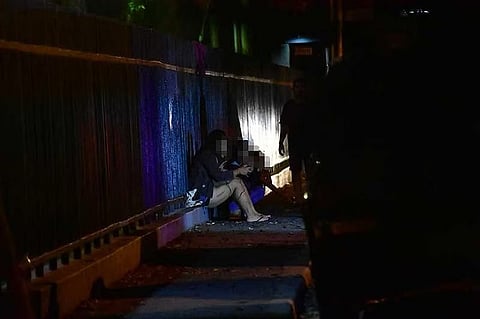

DURING the Kapehan sa Dabaw on Monday morning, October 5, 2023, at SM City Davao's The Annex, Quimpo Boulevard, Davao City, non-government organizations raised concerns about the permits granted to women engaged in prostitution.
According to Lor Pabunag, secretary general of Lawig Bubai, approximately 600 women are registered, working in establishments with processed occupational permits.
Pabunag said that selling one's body for sex should not be classified as legitimate work. Referring to prostituted women as 'pokpok' or 'sex workers' only exacerbates discrimination against them, rather than addressing the root cause of the issue.
“We believe na ang kining pagbaligya sa lawas sa babae dili man ni siya trabaho (We believe that the women selling their body is not in any way a form of work),” Pabunag said.
Jeanette Ampog, executive director of Talikala Incorporated, stated in their release that the term 'sex workers' persists, particularly in agencies and groups focused on HIV and Aids prevention.
However, she argued that this term fails to accurately portray the exploitative situations these women face, and instead, glamorizes their predicament.
Ampog said that for marginalized women, prostitution may be viewed as a survival option. She also noted that the granting of occupational permits allows them to take on roles like guest relation officer (GRO), massage attendant, or dancer, and obtain health or appointment cards.
While there are existing laws against prostitution, such as Republic Act (RA) Number 11930 (Anti-Online Sexual Abuse or Exploitation of Children), RA 7610 (Special Protection of Children Against Child Abuse), RA 9710 (Magna Carta of Women), and a local ordinance in Davao in its second reading for OSAEC, Ampog expressed hope that it would pass the final reading. This, she believes, would signal the commitment of the Local Government Unit (LGU) of Davao to fund programs for prostituted women.
Under City Ordinance Number 5004, which provides for a women’s development code of Davao City, the LGU is mandated to provide socio-economic support to women in the entertainment industry to meet their practical needs. This includes women working in nightclubs, day clubs, cocktail lounges, and other similar establishments.
Under the City Ordinance Number 5004, an ordinance providing for a women’s development code of Davao City and other purposes, under section 16, it is stipulated that the LGU will provide socio-economic support to women in the entertainment industry to respond to their practical needs. Hence, women who are working under, including but not limited to, night clubs or day clubs, cocktail lounges, super or family clubs, disco houses, minus-one or sing-along houses, bars or beer houses, gardens, fast food centers showing video cassette films, movies, beach resorts, and other places.
Ampog questioned the existence of laws that appear to regulate criminal activity and criticized the Business Bureau for issuing occupational permits to prostituted women as entertainers, dancers, and massage attendants, rather than recognizing them as sex workers. She argued that this seemingly promotes prostitution.
“Naa gyud tay tan-awunon, apil be diha ang paghubo, apil ba diha ang pagpahikap sa iyang pribado nga parte kay entertainer ka so kana tung nakita namu na dapat i-engage aside sa pagpasa ug bag-ong balaod (We need to address whether activities like undressing or allowing others to touch private areas are considered. This is a crucial aspect that requires attention, in addition to the passage of ordinances.),” Ampog said.
Lawig Bubai and Talikala called on government bodies, non-government groups, and faith-based organizations to address the root causes of prostitution and implement interventions that support the rehabilitation of victims and survivors. RGP